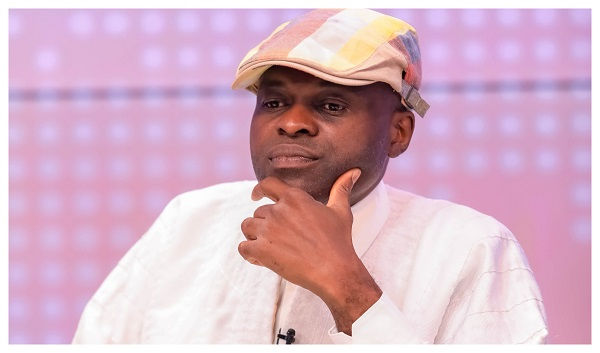Africa urged to mobilise $4tr in domestic capital to drive infrastructure devt
Participants at the Afreximbank Annual Meetings have called on African governments, financial institutions and the private sector to take decisive steps toward unlocking the continent’s estimated $4 trillion in domestic capital.
According to experts, this vast pool of local resources holds the potential to significantly accelerate Africa’s development, particularly in infrastructure, industrialisation and regional trade, without the continent having to rely on foreign aid or external debt.
Speaking at the Afreximbank Annual Meetings in Abuja yesterday, the experts argued that while foreign investment and donor support remain important, Africa must begin to take ownership of its development agenda by strategically mobilising and deploying its internal financial resources.
They insisted that this is critical, especially in bridging the widening infrastructure gap, which requires sustainable, long-term financing that is best anchored in domestic capital mobilisation.
President and Managing Director of the Africa Finance Corporation (AFC), Samaila Zubairu, said that Africa is sitting on an untapped domestic capital of $4 trillion that, if properly structured and guided by the right regulatory framework, could be a powerful engine for the continent’s infrastructure development and broader economic transformation.
Zubairu pointed out that this domestic wealth, which ranges from pension funds, sovereign wealth funds, insurance pools and other financial assets, holds the key to unlocking Africa’s development potential.
He noted that Africa does not need to wait for foreign capital to kickstart its transformation when the continent already possesses the financial capacity to lead its growth.
He also disclosed that an additional $1.1 trillion is domiciled in the non-bank sector, noting that this pool of capital can be deployed to more productive use through appropriate regulatory reforms and better financial intermediation, especially in the private equity, venture capital, and infrastructure development spaces.
Zubairu stressed that while Africa has the capital, what is lacking is the framework for channelling it into productive and high-impact areas.
The challenge, he explained, lies not in the scarcity of funds but in the failure to direct existing resources into strategic investments. “What we need is capital that is directly invested to facilitate deployment in the appropriate sectors,” he said.
Zubairu cited InfraCredit as a successful model of de-risking local capital to support infrastructure finance.
He maintained that Africa must adopt similar approaches on a larger scale, deploying capital in ways that make investment viable and attractive. “Foreign investment will not come unless Africa first develops its capacity. Foreign capital follows local capital, not the other way around,” he said.
He stated categorically that foreign aid, while still relevant, cannot be the backbone of Africa’s future, noting that the continent must take the lead in building Africa it envisions by mobilising its financial resources.
He added that channelling these funds into key areas such as roads, power, ports, healthcare, and industrial development is essential to reducing reliance on foreign debt and aid.
Also speaking, Chairman of BCA and former Group Chief Executive Officer of Ecobank, Arnold Ekpe, called on the private sector in Nigeria and across Africa to take ownership of the continent’s development agenda rather than waiting for government-led investment.
Ekpe stressed the need for African entrepreneurs to rise to the challenge and replicate the kind of bold industrial investments demonstrated by Aliko Dangote, whose refinery project stands as a landmark example of private sector-led transformation.
Ekpe emphasised that Africa’s growth cannot hinge solely on government initiatives or foreign direct investment. He argued that the continent already possesses the domestic capital needed for transformation and that the real challenge lies in mobilising and deploying it effectively.
He said African capital markets are currently ill-structured, making it difficult for private businesses to access funding and scale their operations.
There is a need to move from planning to execution. The development plans have been written. The decisions have been taken. What is left now is action,” he said.
On Africa’s decades-long reliance on national development plans, Ekpe noted that these blueprints have repeatedly failed to deliver results because they lack mechanisms for practical implementation.
He maintained that a more effective alternative would be to identify 20 to 30 high-impact entrepreneurs across sectors and support them with the right policy incentives, financial backing, and market access.











